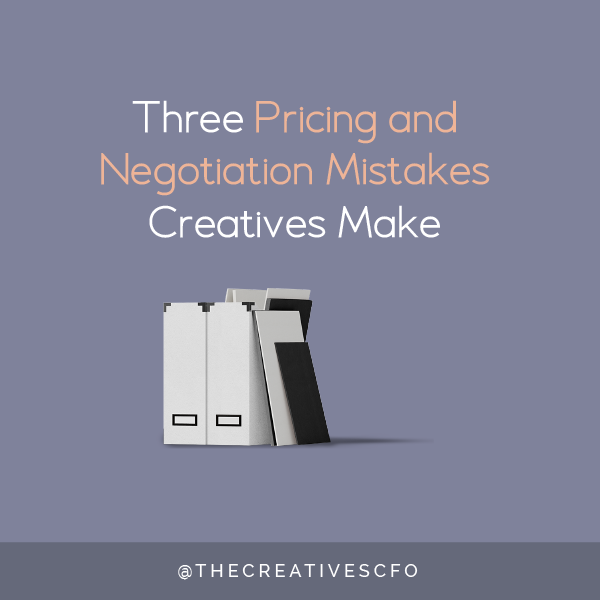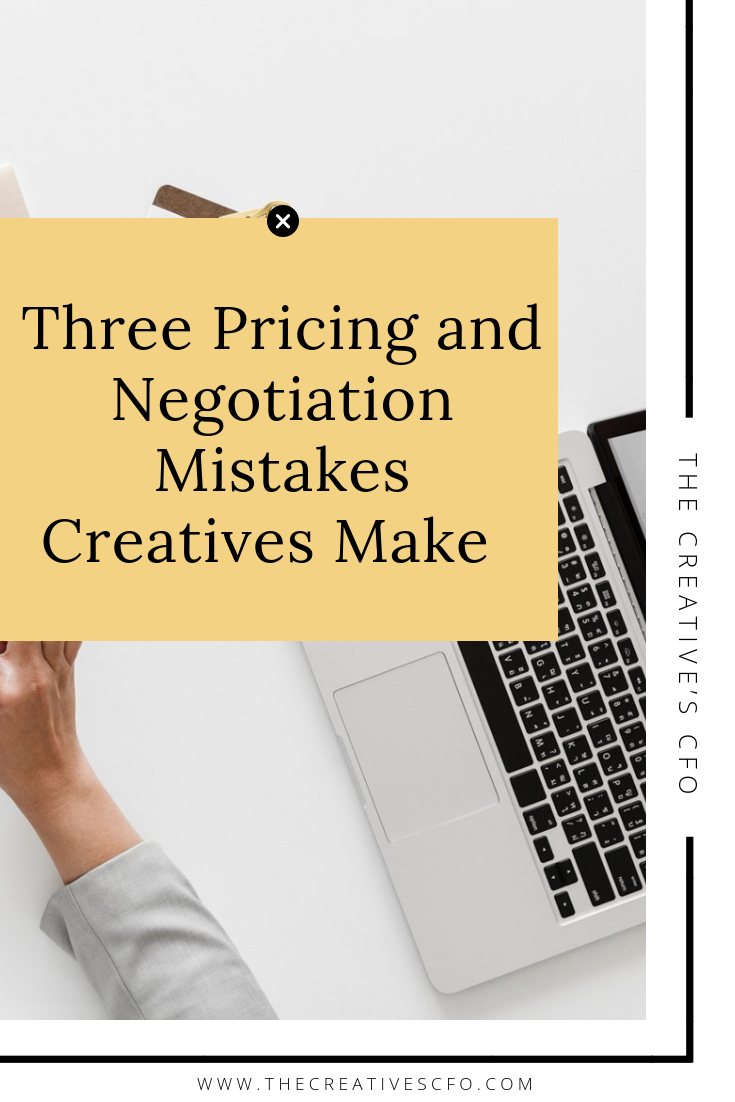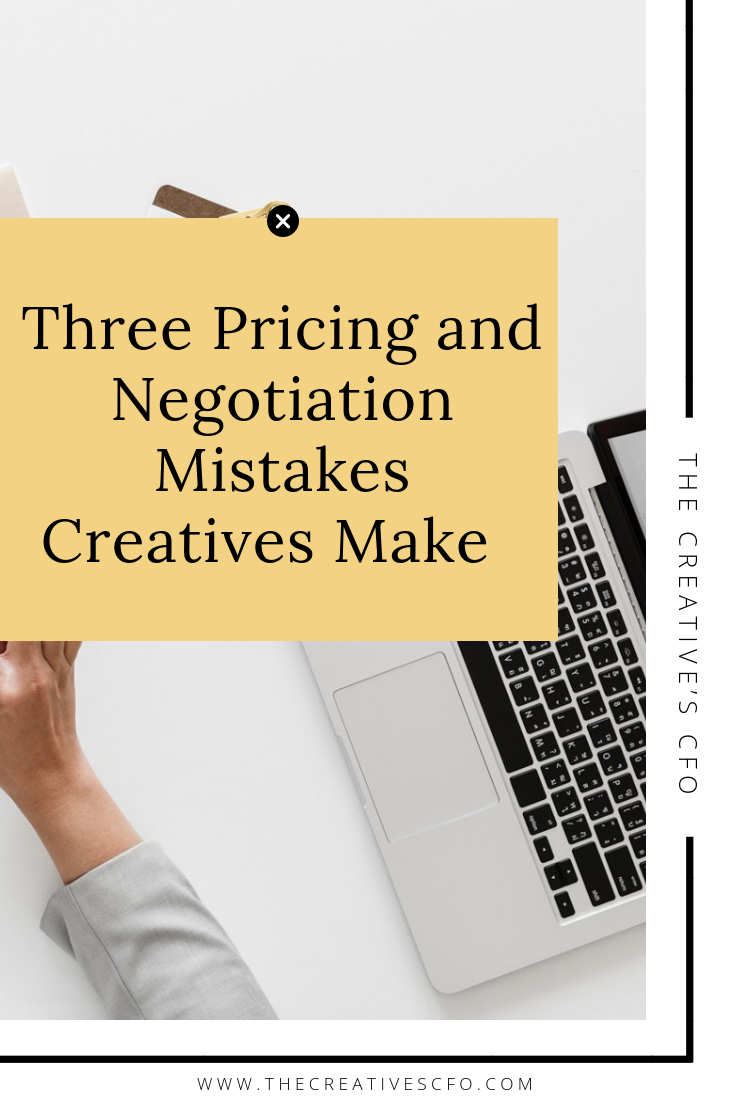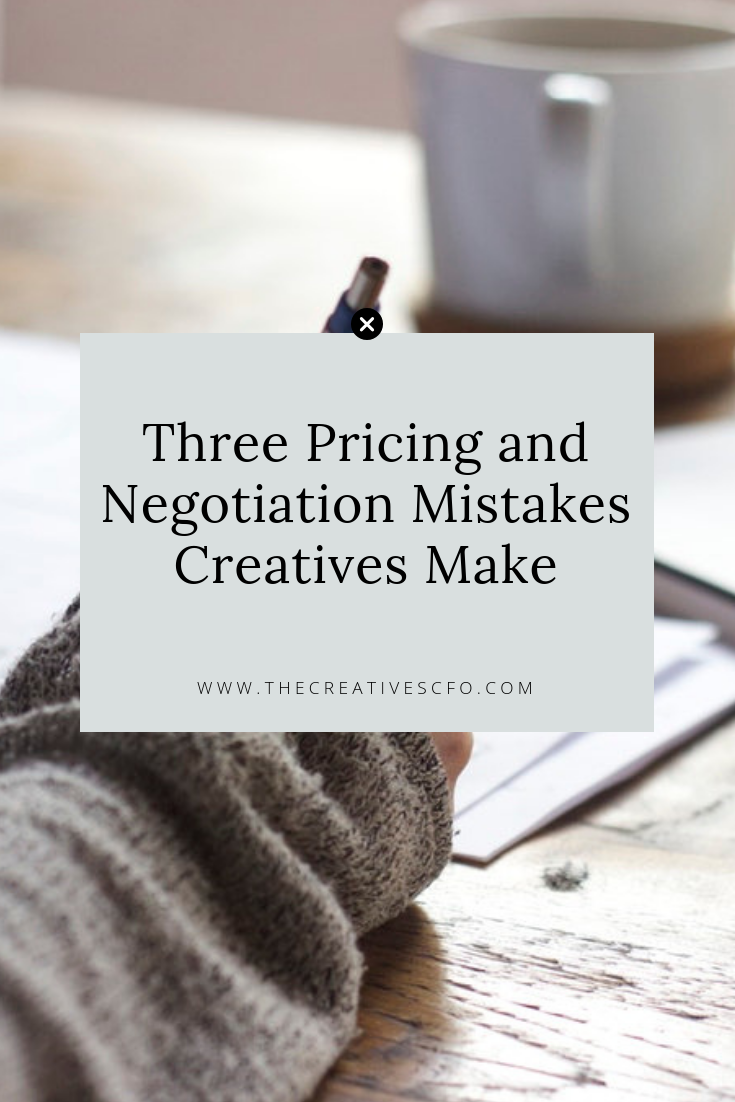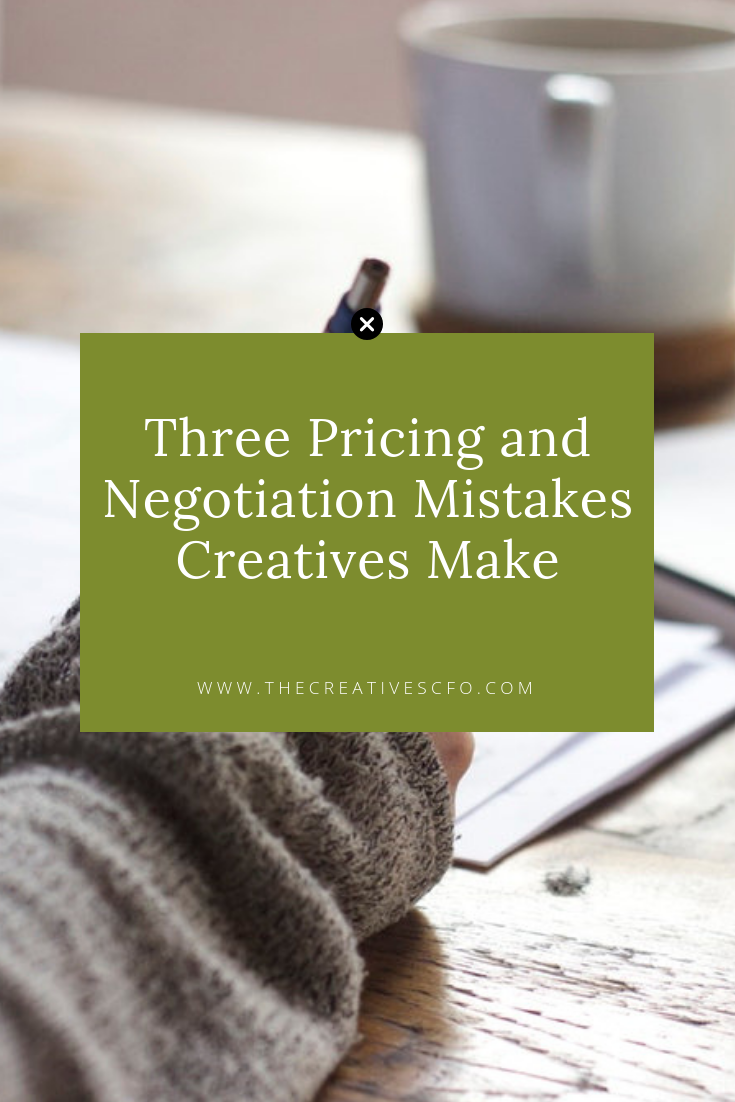Have you ever found it challenging to discuss the price of your product or service? Or, maybe you’ve found yourself negotiating your rates in an effort to close the sale?
We’ve all been there – eager for more sales and less than confident about our pricing.
But pricing your product or service shouldn’t be arbitrary, and a fair rate isn’t as subjective as you might think.
Read on for a few mistakes creative entrepreneurs make when setting their price and negotiating a fair rate, and learn how to fix them.
1. Excessively discounting products and services
It’s no secret that customers love a good sale. So, you discount your product or service hoping to entice them to purchase from you. In doing so, you’ve made price the focal part of your offer, and it is likely to be the deciding factor for the buyer.
What you should do instead … Plan sales.
Choose your dates for sales annually, and stick to them. No more adjusting your price on the fly to suit your emotions around making more sales. If you find that certain products or services only sell when there’s a sale, then it might be time to consider permanently adjusting the price to match the market. But before you do, consider the costs of production to ensure you’re not cutting your profit margins too close.
2. Negotiating based on the customer’s budget
Sometimes, our potential customer’s budget doesn’t match our price. The customer might try to negotiate the price to be more in line with his or her ability to pay. Or, you might be inclined to negotiate your price because you really want their business.
What you should do instead … Focus on value.
Spend some time considering the value of your offer, and look for ways to communicate that value directly to your customer. How does the product or service you provide solve his or her problem?
Then, instead of negotiating your price for customers with lower budgets, offer to negotiate your services to fit the lower budget. You could create a smaller package that fits their needs and their budget while still being fairly compensated for your work.
3. Not knowing what it costs to run your business
While we are often aware of the direct costs related to producing our product or service, everyday operating expenses don’t get as much attention and are often left out of the pricing equation.
What you should do instead … Know your numbers.
It’s important that you know exactly what it costs each month to keep your virtual doors open so that you can fairly price your product or service for profitability. Knowing your numbers will also steer you away from pricing yourself out of profit.
If you’d like a worksheet to help you get clear on your business spending, sign up here.
I hope that by shifting your focus in these areas you’re able to price yourself for profit and negotiate based on the value you bring and problem you solve.
